[fusion_builder_container hundred_percent=”no” equal_height_columns=”no” hide_on_mobile=”small-visibility,medium-visibility,large-visibility” background_position=”center center” background_repeat=”no-repeat” fade=”no” background_parallax=”none” parallax_speed=”0.3″ video_aspect_ratio=”16:9″ video_loop=”yes” video_mute=”yes” border_style=”solid” flex_column_spacing=”0px” type=”legacy”][fusion_builder_row][fusion_builder_column type=”1_1″ layout=”1_1″ background_position=”left top” background_color=”” border_color=”” border_style=”solid” border_position=”all” spacing=”yes” background_image=”” background_repeat=”no-repeat” padding_top=”” padding_right=”” padding_bottom=”” padding_left=”” margin_top=”0px” margin_bottom=”0px” class=”” id=”” animation_type=”” animation_speed=”0.3″ animation_direction=”left” hide_on_mobile=”small-visibility,medium-visibility,large-visibility” center_content=”no” last=”true” min_height=”” hover_type=”none” link=”” first=”true”][fusion_text]

With the renaissance of early 2000’s fashion, more women are seen in trucker hats but still not enough behind the wheel. As more male dominated industries see exponential progress in gender equality, the disparity of women in commercial trucking becomes extremely apparent. Within the transportation industry, there has been a massive upsurge of women within management, making up 23% in 2018. But, there are still only 7% women driving trucks or transport trailers. Why are women still shying away from being commercial drivers?
Societal norms and uninformed presumptions about the trucking industry play a huge factor in the lack of women behind the wheel. But with the pandemic, women have seen the impacts of unemployment more so than their male counterparts. This gap is due to the fact that women dominate service positions which were the first to be closed and the last to be reopened. Many are looking for a new career path; a job with stability and longevity in a new, uncertain workforce. A career as a commercial truck driver can provide both of these for many women.
With the transportation of PPE and vaccines, the trucking industry is starting to be viewed as it truly is; an essential service that is crucial to our safety and our way of life. This shift in perspective has broadened our view of who can be truck drivers. Fleet owners are looking more and more to women to fill these roles. Women who take pride in the services they provide, who can be a part of an industry that keeps the world moving. Being a commercial truck driver provides women with the flexibility and freedom that most jobs don’t. Not all truckers do long haul trips; there are short hauls which take up less time. They are able to create schedules that work for them and their lifestyles without having to stick to a never changing weekly grind. Women do not have to deal with the emotional stress that usually comes with dealing with the public; women are able to be alone on the road with just their thoughts. A position like this may be a relief for those affected by anxiety which is twice as likely to affect women. Trucking also provides the unique opportunity to travel unlike any other job.
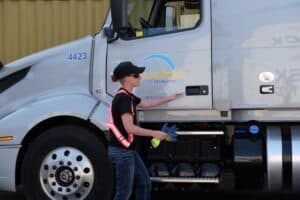
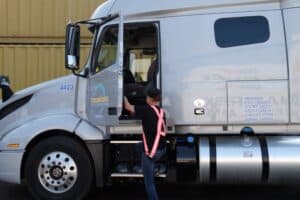
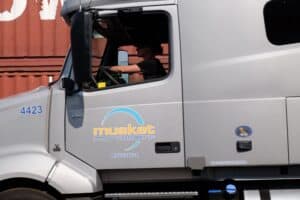
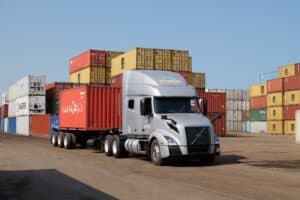
Although it can be grueling at times as per our own Brandi H, you are essentially paid to go on a road trip and witness some amazingly breathtaking views. There are also no lack of positions open. A Trucking HR report estimates that Canada will experience a shortage of 25,000 truck drivers by 2023. Many don’t understand the weight of this shortage and the effect it can have on a country like ours that is so reliant on trucking due to our vast land mass. As current truck drivers age out of their roles, fleets are having a hard time filling these roles. Because of this scarcity, the industry, now more than ever, is pleading for women to join and is expanding their own internal processes to create a safer environment for women to work. (Watch Brandi demonstrate backing technique)
To make the workplace more friendly to women, the trucking industry has started to think a lot more about the safety of their drivers. Traditional truck cabs are created to support men, heavier and larger builds are needed to accommodate their size. Unfortunately, this means petite women are forced to reach for controls which poses the threat of strain on their body as well as distraction from driving. More and more fleets are equipping their trucks with smaller cabs, offering comfort to the female drivers on their team. Some employers are also looking at changing the compensation of long haul. The industry trend is seeing more fleet owners charge by hour than by mile; promoting safer driving so drivers don’t rush to get through their miles. Women typically are found to drive slower than men; travelling less distance which traditionally would equate to lower pay. Charging by hour doesn’t financially punish their safe practices.

On March 16th, The Musket Transport Ltd. created a new scholarship which will provide one woman with all the funds needed to obtain an AZ license with CHET. This scholarship works to remove the gender stereotypes around commercial truck drivers and create a more inclusive workplace. But even without the scholarship, CHET works with municipal and government programs to provide as many funding options as possible. Obtaining your AZ licence is significantly less expensive than a bachelor’s degree and provides the same earning ability. StatsCan found the average woman with a bachelor’s degree made roughly $68k while the average long haul truck driver makes roughly $61k per year.
Although there have been many jokes, there has never been any conclusive evidence that men are better drivers than women. Especially in the world of trucking. An interview with our male driver, Marcus P, confirmed this when asked the greatest misconception about the trucking industry:
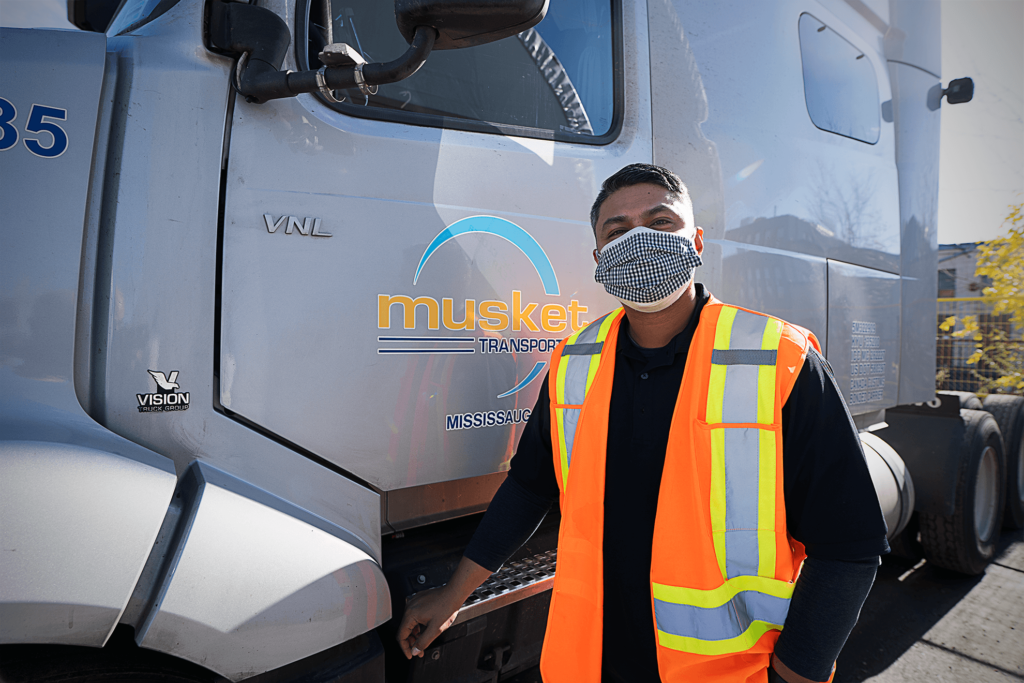
Men are better truck drivers than women. Misconception! Fact: research shows in fact, women are better truck drivers! (Interview here)
Women are reported to be more gentle on the equipment. Cautious and considerate use of equipment results in less need for maintenance and extends equipment longevity; this affects the bottom line of a fleet owner hugely. Women are noted to speed less than men causing less tickets or accidents. These safe practices help bring down the number of legal cases and insurance premiums. Despite some myths, operating and driving a transport trailer or truck doesn’t require great amounts of physical strength; making the position in essence, completely gender neutral.
The world is changing, even more so now accelerated by COVID-19. As our world relies more and more on trucking to transport our goods, we need our fleets to be fully diverse so they can fill the growing number of positions. Seeing more women on the ground floor of trucking will bring forth more change than any article, report or policy ever will. Be a leader within your community while providing for yourself. Inspire a younger generation of girls to realize they can drive with the big boys.
If you are interested in making the leap into being a commercial truck driver, please apply to The Musket Transport Ltd.’s AZ License Scholarship with the link below and check out our live event hosted at CHET (all COVID-19 precautions will be taken) with Shelley, President of the Trucking Federation of Canada, who will be answering questions from female AZ Graduates. The event will also have a tanker driving CHET graduate who will speak more on the AZ License scholarship program.
https://chet.ca/annual-musket-funded-female-az-scholarship/
[/fusion_text][/fusion_builder_column][/fusion_builder_row][/fusion_builder_container]
Author: Kelsey Armour
